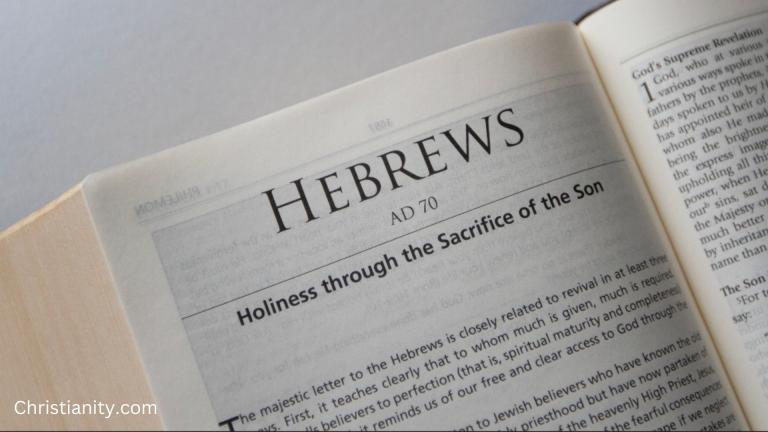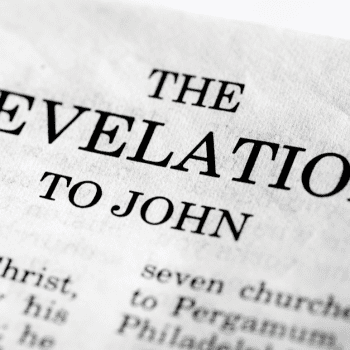Monday: Read Heb 2:1-4; 6:1-8
Today’s reading is from two passages in Hebrews. They are among the most difficult passages in the NT.[2] The controversy is over whether or not one can lose their salvation. Needless to say, those who advocate that one can lose their salvation appeal to texts like these.[3]
It is likely that the author is writing (or speaking: remember that Hebrews was likely a sermon that was written down later) to those who have remained in the church. In 2:1-4 the author is encouraging those who have remained to stay faithful to the Gospel. He wants to encourage them to remain committed to Jesus. After all, Jesus is the fulfillment of God’s promises throughout the OT.
He is also speaking about those who have left Christ. In 6:1-8, the author appears to be addressing here those who have left.
Questions to ponder/discuss:
- These are two very difficult texts and we should be careful about building a theology around them. At the same time, we should not ignore or dismiss them either. What are some of your key takeaways from these texts?
- What are some pros and cons of the view of eternal security (the idea that one cannot lose their salvation)?
- What are some pros and cons of the view that one can lose their salvation?
Tuesday: Read Heb 2:5-18; Psalm 8
The author has been arguing that Jesus is superior to the angels. The problem is that it is easy to see Christ’s humanity and consider the angels as greater. So the author reminds us, by citing Psalm 8, that Jesus (9; though the Psalm is speaking about humanity as a whole) was made “for a little while lower than the angels” (7; Ps 8:5).[4]
The author then explains, by continuing to appeal to Psalm 8, that humanity was exalted with “glory and honor” (7; Ps 8:5). In Psalm 8, the glory and honor given to humanity was as a result of the fact that God appointed humanity to rule over His creation (Ps 8:6-8).
The author then applies this to Jesus (9). In doing so, he explicitly associates Jesus’ death as the moment when He received “glory and honor” (9). In fact, the author notes that Jesus was perfected “through sufferings” (10). In addition, Jesus’ sufferings also rendered “powerless him who had the power of death, that is, the devil” (14).
In all of this, Jesus has become the perfect High Priest (17). After all, He knows exactly what we are going through because He Himself has experienced suffering and temptation.
Questions to ponder/discuss:
- We cannot read past this passage too quickly without contemplating the role of suffering in the life of Christ and God’s people. Jesus was “perfected” in his suffering. This causes us to wrestle with the lack of suffering that plagues the western church. What are your thoughts on our lack of suffering?
- Of course, when we consider suffering we often think exclusively in terms of something that happens directly to us and that causes us pain. But suffering could also be a result of our grief and anguish over the ways of the world (“Blessed are those who mourn”: Matt 5:4). In addition, could it be that our grief urges us to respond with the aim of bringing justice and relief to those who are suffering? And might this in turn cause those who are benefitting at the expense of others to resist our efforts to advocate for justice?
- In light of all of this, what do you think it means to “suffer well”?
- We often question why God allows what he allows. But Hebrews tells us that Jesus’ qualifications as a High Priest are based on the fact that He has suffered too. He knows what we are going through. Perhaps, this is one reason why God has brought us on the journey (or allowed us to travel down a certain path). Maybe it is to bless someone else. [note: I say “maybe” here very intentionally. This simply cannot account for all of our sufferings. Some people do not survive to “help” someone else. Therefore, I say this with great caution].
Wednesday: Read Heb 3:1-19
The author continues setting forth the superiority of Jesus by comparing Jesus to Moses. Moses is the one through whom God made the original covenant at Mt Sinai with Israel. Jesus, of course, is the One through whom the new covenant has come (Luke 22:20).
In 3:7-12, the author again exhorts his audience with force. He says that we should not harden our hearts like the Israelites in the wilderness did (8). After all, they too had great privileges (9) and they saw God’s works for forty years (9)! The author is likely alluding to the presence of God above the tabernacle and the provision of manna and water in the midst of the desert. Unfortunately, the Israelites went “astray in their heart, And they did not know My ways” (10; Ps 95:10).
In 3:13-18, the author exhorts them to encourage one another (13). The call to faithfulness requires a community that works together.
Questions to ponder/discuss:
- Though it might be easy for to not make much of the comparison between Moses and Jesus, after all, Moses was just a man and Jesus is the Divine Son of God, the comparison would have carried great weight in and among the author’s Jewish audience. Moses is the one through whom God spoke and gave the Law. Does viewing Moses as merely human cause you to look down on the OT and the Law?
- The command to not harden our hearts like the Israelites in the wilderness did must also be read with great force. The author of Hebrews is pointing out the fact that they too had great privileges (9). One of the key distinctions between the OT people of God and the NT people of God is that the people of God today have the Holy Spirit who enables us to have belief and to overcome.
Thursday: Read Hebrews 4:1-16
The author continues his call to steadfast belief by reminding them of their predecessors who fell in the wilderness. He continues to assert that it was because they failed to have faith (2). Yet, in this passage, the author twice refers to the “disobedience” of the Israelites (6, 11).
The author then explains the power of the Word (12-13).[5] The Word penetrates the deepest recesses of creation (12). As a result of the presence of the Word, “there is no creature hidden from His sight” (13).
The author again finishes with an appeal. First, he contends that since Christ has been exalted through suffering and serves as our Great High Priest (14), then “let us hold fast our confession” (14). Then, he adds, that since Christ faithfully endured suffering and temptation, we too should “draw near with confidence to the throne of grace, so that we may receive mercy and find grace to help in time of need” (16).
Questions to ponder/discuss:
- Skim through 3:11-4:16 and note how often the author comments about the Israelites’ unbelief.
- We often simplify matters too much. When it comes to the issue of salvation, we make it about belief or actions. We reject those who stress good works because it tends toward legalism and earning one’s salvation. At the same time, we contend against those who merely “believe” by questioning the legitimacy of their confession. The biblical text doesn’t allow for such a radical separation. The author has been exhorting them to be faithful unlike their ancestors who did not enter the rest because of “unbelief” (3:19). Yet, the author also says that they failed to enter “because of disobedience” (6; see 11). Discuss how you think faith and obedience work together.
- We cannot overstate the power of the Word. It is God’s Word that transforms lives. What do you think of a service, or Bible study, in which only the Bible was read (i.e., the entire service/study consisted of worship, etc., and then the “teaching” time was limited to only reading the Bible)?
Friday: Read Heb 5:1-14
The author continues his appeal that Jesus is superior by comparing Christ to the priests who serve in the temple. He notes that priests were to “offer gifts and sacrifices for sins” (1). They were qualified to do so because they too were “beset with weakness” (3). Because of their weakness, they must offer sacrifices for others and “for himself” (3). The author also notes that priests received their office by being called by God (4).
The author then transitions to Jesus who also was appointed to His office: “So also Christ did not glorify Himself so as to become a high priest, but He who said to Him,
“You are My Son. . . .” (5). He then notes that Jesus was appointed as a priest “According to the order of Melchizedek” (6, 10; See Ps 110:4; note again that the author appeals to Psalm 110).
The author continues by again appealing to Jesus’ suffering: “Although He was a Son, He learned obedience from the things which He suffered” (8).
The author will return to the topic of Jesus’ priesthood at great length in the chapters to follow. He interrupts his message here to reprimand his audience (11-14). They should know this, he says, and in fact, they should be teaching others, but unfortunately, they need to be fed milk themselves (12-14).
Questions to ponder/discuss:
- Spiritual growth is not optional. It is necessary for the follower of Jesus to become more like Him. When we recognize that have been called to make Christ known to the world and that Christ has modeled for us what it means to be God’s image bearers, we begin to see that our mission is to become like Christ. Thus, the author’s reprimand is warranted.
- The book of Hebrews reminds us that we are called to be teachers of others. For some, this might mean taking on teaching roles. For others, it might mean mentoring someone else.
[1] This guide is meant to be done either as a group study over the course of 2 or 4 meetings (Day 1-5; 6-10; 11-15; 16-20), or as a private devotion over the course of 4 weeks (or a calendar month—5 lessons per week).
[2] There are other passages in Hebrews similar to these but we will confine ourselves to these two passages.
[3] This controversy is in part why some in the early centuries rejected the book of Hebrews as from God.
[4] Interestingly, the Psalm does not say “angels” in Hebrew. It says, “god(s)” (the elohim).
[5] Note that the “Word” here does not need to be restricted to the written Word. It could refer to God’s spoken Word to the Israelites.












